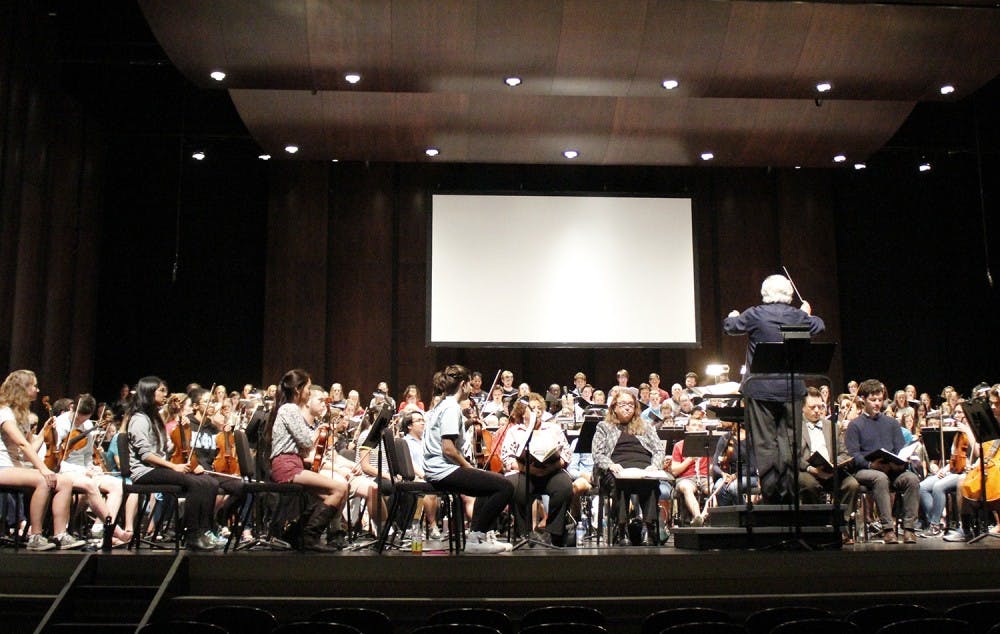The creator of The Defiant Requiem Foundation, Murry Sidlin, will be conducting the performance. He said, for him, it’s about understanding.
“Terezín was a concentration camp from ’41 to ’45. All together 150,000 prisoners went through there and very few survived,” he said. “It was a way station for Auschwitz.”
Sidlin said Terezín stood out from the other camps because of its large population of artists and musicians. The prisoners would gather and perform music in order to keep up their morale.
“They were able to put on over 1,000 concerts, and one of the most famous ones was the performance of Verdi’s ‘Requiem,’” he said. “One of the big questions was why would a Jewish crowd in a concentration camp bother to learn a Catholic requiem and perform it over and over again.”
The answer was simple, Sidlin said. Verdi’s “Requiem” is a piece about the judgment of God, and the prisoners sang it to the Nazis.
“They were singing about a day of wrath coming to the Nazis,” Sidlin said. “In other words, ‘You’ll get yours.’”
The conductor who put together the Verdi requiem at Terezín, Raphael Schächter, used the performance to try to show the outside world what was happening at the concentration camp.
“He was the genius that put together the Verdi requiem, and the climax of these performances was when they sang before the International Red Cross and the Nazis, in the hopes that the Red Cross would see the camp for what it really was,” Sidlin said.




